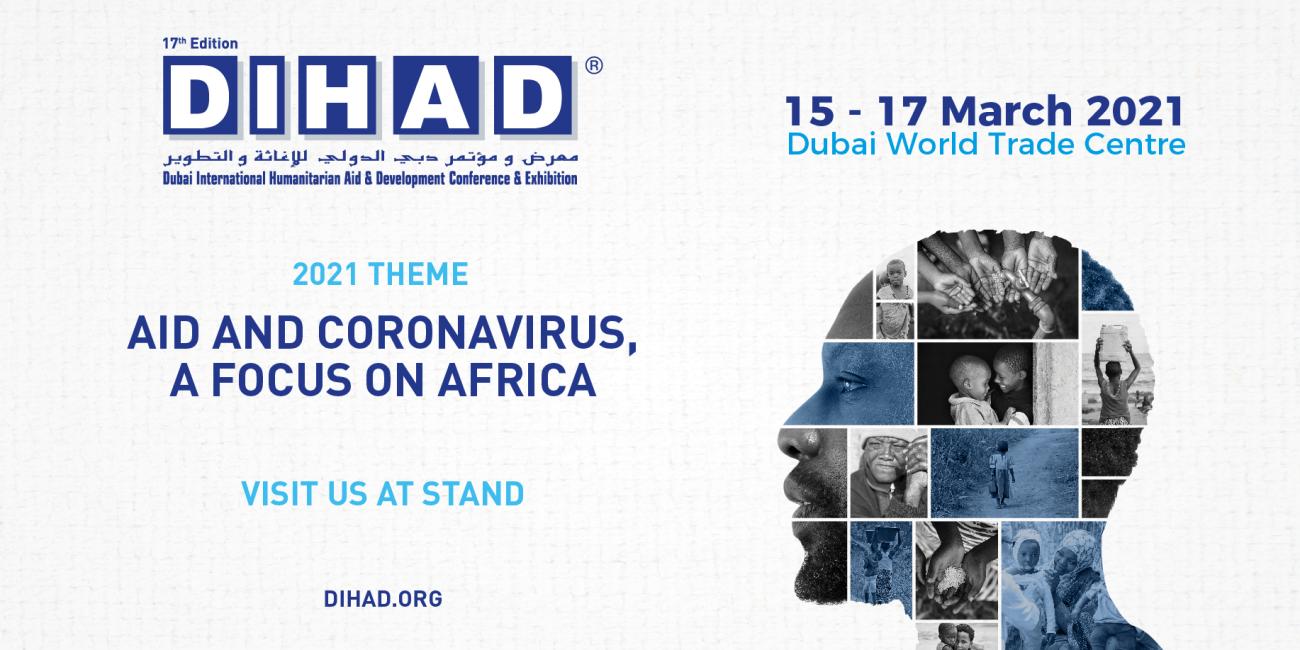The UN Resident Coordinator (UNRC) Addresses the DIHAD Conference on “Africa: Impact of Conflicts and Humanitarian Crises”

On 17th March 2021, the UNRC participated virtually in the annual DIHAD Conference, addressing the topic; 'Africa: Impact of Conflicts and Humanitarian Crises'.
The Dubai International Humanitarian Aid and Development (DIHAD) Conference explores ways to mitigate the impact of conflicts on crises and provide adequate humanitarian aid to meet the needs of vulnerable people, and ultimately advance the development of principled and effective international development assistance.
The DIHAD Conference was attended by key decision-makers from NGOs, UN Agencies, Charity Organizations, the Private Sector and Governmental bodies to discuss issues that affect people and countries affected by disasters, crises and natural calamities.
The DIHAD International Scientific Advisory Board (DISAB) director, Ambassador Gerhard Putman- Cramer, stated that Africa is a continent disposed to conflicts and disasters, and thus, there is a need for much humanitarian aid. He continued that; “Africa’s conflicts have profound adverse effects on the development of the countries concerned and the region as a whole.”
Due to the high rates of conflicts in Africa, aid provided is basic and given mostly to victims of war. Less resources are therefore spent on arising humanitarian needs and issues across the continent such as climate change, hunger and poverty.
The UN Resident Coordinator (RC), Nathalie Ndongo-Seh, stated that; “conflicts on the continent are rooted in the complex historical and socio-economic factors, in the devasting legacies of authoritarian regimes including mismanagement of natural resources, in discriminatory policies, international pressures and in local obstacles.’’ Hence, increasing issues of poverty, famine, mass displacement of persons, the destruction of livelihoods, weak institutions, and dysfunction of basic health, education and social services are ever-increasing.
The RC emphasized the need to focus on SDG 16; ‘Promote peaceful and inclusive societies for sustainable development, provide access to justice for all and build effective, accountable and inclusive institutions at all levels by 2030,’ noting that sustainable development is not achievable without peace.
The Democratic Republic of the Congo (DRC), an example of a country in Africa deeply affected by decades of conflict and human rights violations, continues to suffer. The country’s land is rich in natural resources such as oils, diamonds and gold, however, the people are among the poorest in the world as 13 million lack adequate food and more than 1.3 million children under 5 are affected with severe acute malnutrition.
“Sustainable development and durable solutions to humanitarian relief are not possible without peace. It is critical to recognise the humanitarian/development/peace nexus, which focuses on the work needed to coherently address people’s vulnerability before, during and after crises; emphasizes on a more coherent approach among actors for offers greater opportunities,”
“Achieving the right mix of humanitarian, development and peace approaches, and how they are integrated, is critical. Truly delivering a humanitarian-development-peace (‘triple’) nexus approach involves rethinking finance mechanisms, ways of working, the expertise needed, and a more deliberate and consistent integration of conflict sensitivity and enhancing local capacities for peace,” stated the UN Resident Coordinator.
The UNRC continued that there should be programmes which are responsive to changes in context and enable capacity-sharing and collaboration between humanitarian, development and peace actors.
“In 2020, in the face of devastations caused by COVID-19 around the world, the UN Secretary-General stated that ‘it is time to put armed conflict on lockdown and focus together on the true fight of our lives.’ Together, we must silence the guns,” concluded Ms Ndongo-Seh.


